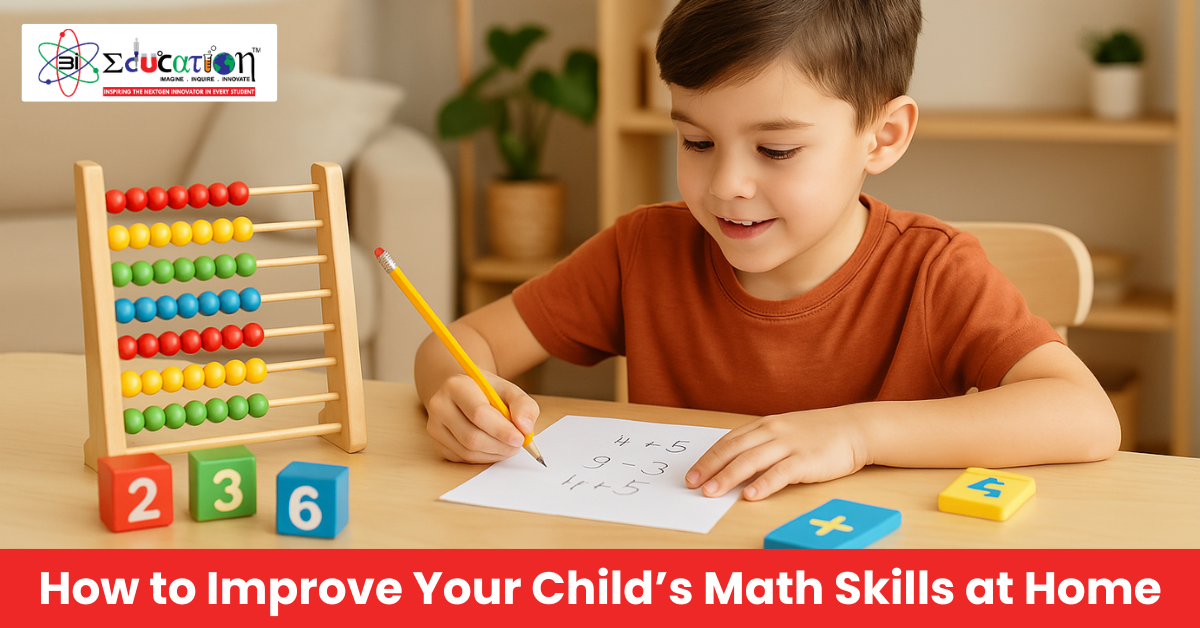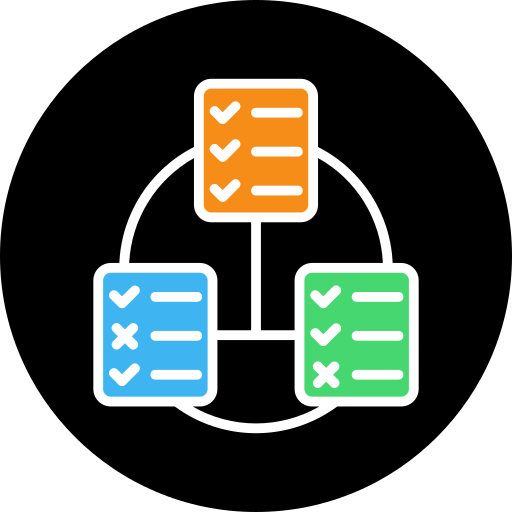Table of Contents

Mathematics is a fundamental skill that plays a crucial role in a child’s academic journey and everyday life. As parents, fostering a positive attitude towards math and providing supportive learning environments at home can significantly enhance your child’s mathematical abilities. Here are practical strategies to help your child, from grades 1 to 10, improve their math skills at home.
1. Make Math a Part of Daily Life
Integrate math into everyday activities to show its real-world applications:
- Cooking and Baking: Involve your child in measuring ingredients, which teaches fractions and ratios. For example, ask them to double a recipe, requiring them to calculate new measurements.
- Shopping: Have your child help with budgeting during grocery trips. They can compare prices, calculate discounts, and estimate the total bill.
- Time Management: Encourage your child to read clocks, calculate time intervals, and create schedules, enhancing their understanding of time-related math concepts.
2. Utilize Educational Games and Apps
Interactive games can make learning math fun and engaging:
- Online Platforms: Websites like Math Playground offer a variety of games tailored to different grade levels.
- Board Games: Games such as Monopoly or Settlers of Catan involve strategic thinking and basic arithmetic, providing a playful way to practice math skills.
- Card Games: Simple games like “War” can be adapted to teach addition and subtraction by having players compare the sum or difference of two cards.
3. Encourage a Positive Mindset
Your attitude towards math can influence your child’s perception:
- Stay Positive: Avoid expressing negative feelings about math. Emphasize that challenges are opportunities for growth.
- Praise Effort: Acknowledge your child’s hard work and persistence rather than focusing solely on correct answers. This fosters resilience and a growth mindset.
- Set Realistic Goals: Help your child set achievable math goals, celebrating progress to build confidence.
Source : HMH K-12 Learning
4. Create a Supportive Learning Environment
Establish a conducive space and routine for math practice:
- Dedicated Study Area: Set up a quiet, well-lit space free from distractions where your child can focus on math activities.
- Consistent Schedule: Allocate specific times for math practice, balancing structured learning with breaks to maintain concentration.
- Accessible Resources: Provide necessary materials such as pencils, paper, calculators, and access to educational websites or apps.
5. Engage in Interactive Math Activities
Hands-on activities can reinforce math concepts:
- Scavenger Hunts: Create a place value scavenger hunt using magazines or newspapers. For example, ask your child to find numbers that fit specific clues like “a 3 in the tens place” or “a 9 in the hundreds place.” This activity enhances number recognition and understanding of place value.
- Building Projects: Use building blocks or construction sets to explore geometric shapes, symmetry, and spatial reasoning.
- Art Integration: Incorporate math into art projects, such as creating patterns, exploring symmetry, or measuring dimensions for crafts.
Source : ABCmouse.com
6. Leverage Technology and Online Resources
Digital tools can provide personalized and engaging math experiences:
- Educational Apps: Apps like DragonBox introduce algebraic concepts through interactive games, making complex ideas accessible and fun.
- Video Tutorials: Platforms like Khan Academy offer free tutorials on a wide range of math topics, allowing your child to learn at their own pace.
- Virtual Manipulatives: Online tools can help visualize abstract concepts, such as fractions or algebraic equations, enhancing comprehension.
Source : Prodigy Game
Source : Wikipedia
7. Read Math-Related Books
Reading can strengthen mathematical understanding and vocabulary:
- Storybooks: Choose books that incorporate math concepts within engaging narratives, making learning more relatable.
- Problem-Solving Books: Select books that present math challenges and puzzles, encouraging critical thinking and application of skills.
- Biographies: Explore stories of famous mathematicians to inspire and show the human side of mathematics.
8. Communicate with Teachers
Stay informed about your child’s math curriculum and progress:
- Regular Check-Ins: Schedule meetings or correspond with your child’s math teacher to discuss strengths, areas for improvement, and strategies to support learning at home.
- Homework Support: Understand the methods being taught in school to provide consistent guidance during homework sessions.
- Resource Recommendations: Ask teachers for additional resources or activities that can reinforce classroom learning.
9. Encourage Group Study and Peer Learning
Collaborative learning can enhance understanding and make math more enjoyable:
- Study Groups: Organize study sessions with peers to discuss concepts, solve problems together, and share different approaches.
- Teaching Others: Encourage your child to explain math concepts to family members or friends, reinforcing their own understanding.
- Online Forums: Participate in online communities where students can ask questions and share knowledge in a supportive environment.
10. Seek Professional Support When Needed
If challenges persist, consider additional assistance:
- Tutoring Services: Professional tutors can provide personalized instruction tailored to your child’s needs.
- After-School Programs: Enroll your child in programs that offer math enrichment activities and support.
- Educational Assessments: If there are significant concerns, consult with educational psychologists for assessments to identify specific learning needs.
Source : Prodigy Game
Source : Reddit
Conclusion
Improving your child’s math skills at home involves creating a positive, engaging, and supportive environment that integrates math into daily life. By utilizing educational resources, encouraging a growth mindset, and maintaining open communication with educators, you can help your child build confidence and proficiency in mathematics. Remember, every child learns at their own pace, so patience and encouragement are key. For additional support, consider exploring resources like 3iEducation, which offers tailored programs to enhance math skills for students in grades 1 through 10.
By implementing these strategies and utilizing available resources, you can create a supportive and engaging environment that fosters your child’s mathematical growth and confidence.







